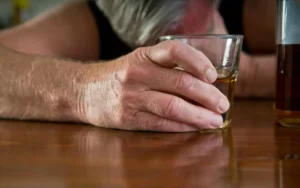
Expressing how thankful you are to them makes you feel good, strengthens your relationships, and makes others feel valued. These conditions can make recovery more challenging and increase the risk of relapse. Research has found that gratitude practice reduces psychological distress, such as stress, anxiety, depression, and anger. Gratitude can help you cope with the difficulties of recovery by boosting your emotional resources and strengthening your coping skills.
- On the other hand, gratitude can also arise more outwardly towards others who have helped in your recovery process.
- Suffering from a substance use disorder can cause you to do things you aren’t proud of.
- The key to practicing gratitude in recovery is to make it a habit.
- It’s more than just noticing the good but identifying the external sources of goodness.
- Gratitude serves as an antidote to negative thinking, which can hinder progress in recovery by reducing hope and happiness.
- However, it complements the journey by fostering appreciation without hindering personal growth.
- Some people may think that gratitude is simply expressing appreciation or saying thank you to others.
Family and Children’s Programs
The important thing is that you learn how to focus on what’s important in the now rather than stressing about the past or future. The FHE Health team is committed to providing accurate information that adheres to the highest standards https://ecosoberhouse.com/ of writing. This is part of our ongoing commitment to ensure FHE Health is trusted as a leader in mental health and addiction care. Gratitude involves more than self-reflection; it should be practiced as love in action.

Increases happiness and satisfaction
- Cultivating gratitude and a positive attitude is an important aspect of recovery.
- When you communicate with other people, express what you are thankful for.
- When we are optimistic we see good outcomes in even the most trying situations.
- By cultivating a sense of gratitude, individuals in recovery can experience increased feelings of happiness, contentment, and overall life satisfaction.
- Taking stock of what you’re grateful for should be about stepping back and taking stock of what you appreciate, what has gone right, and how things have gone better than they could have.
This is particularly true for people in recovery from alcohol or drugs. Gratitude is also the antidote to negative thinking that reduces hope and happiness. People who dwell on the negative aspects in their lives almost always find it difficult to reach a state of contentment. In recovery, excessive negative emotions put people at risk for relapse. This is not to say negative emotions should be overlooked or ignored, but obsessive or continuous negative thinking is hazardous to a healthy recovery.
Essential Practices in New Hampshire Men’s Rehab
Gratitude serves as an antidote to negative thinking, which can hinder progress in recovery by reducing hope and happiness. Excessive negative emotions can put individuals at risk for relapse, making gratitude a crucial practice to maintain a positive mindset. gratitude in recovery In addiction recovery, gratitude is about embracing reality while maintaining a positive outlook. It doesn’t deny the challenges, problems, or negative emotions we may face, but it empowers us to navigate them with a broader perspective and a sense of hope.

- The more you repeat these affirmations, the more you will internalize them and feel their effects.
- Many people who struggle with addiction also suffer from co-occurring mental health issues, such as depression, anxiety, PTSD, or bipolar disorder.
- Only more recently have researchers started to pick apart the reasons it can be so helpful and beneficial.
By recognizing their strengths, accomplishments, and the support received along the way, individuals experience a renewed sense of purpose, motivation, and self-empowerment. A feeling of gratitude is similar to a sense of solid appreciation. When you practice gratitude, you make a conscious effort to recognize the things, people and actions in your life you should be thankful for.

This happens because most humans are ‘wired’ to benefit from social good, including helping others. When you do good things, you just feel good, which will help you to feel better. Whether you have a lot going on in your life or almost nothing, you can likely find even something to be grateful for. Taking stock of what you’re grateful for should be about stepping back and taking stock of what you appreciate, what has gone right, and how things have gone better than they could have.
Start a gratitude journal
However, a substance use disorder is a disease, it’s often the result of choices you made, but choices you made without the intention to become addicted. You may have made mistakes, but you are trying and you are in recovery and getting better. Recognizing that and working to forgive yourself is an important step.

Gratitude Works for Everyone—Not Just Sober Folks
Many people who struggle with addiction also suffer from co-occurring mental health issues, such as depression, anxiety, PTSD, or bipolar disorder. However, gratitude can help you overcome these difficulties and see positivity in your recovery. You may still struggle with some of these challenges and emotions in early recovery. You may also have to deal with the consequences of your addiction, such as health problems, legal issues, or damaged relationships.

